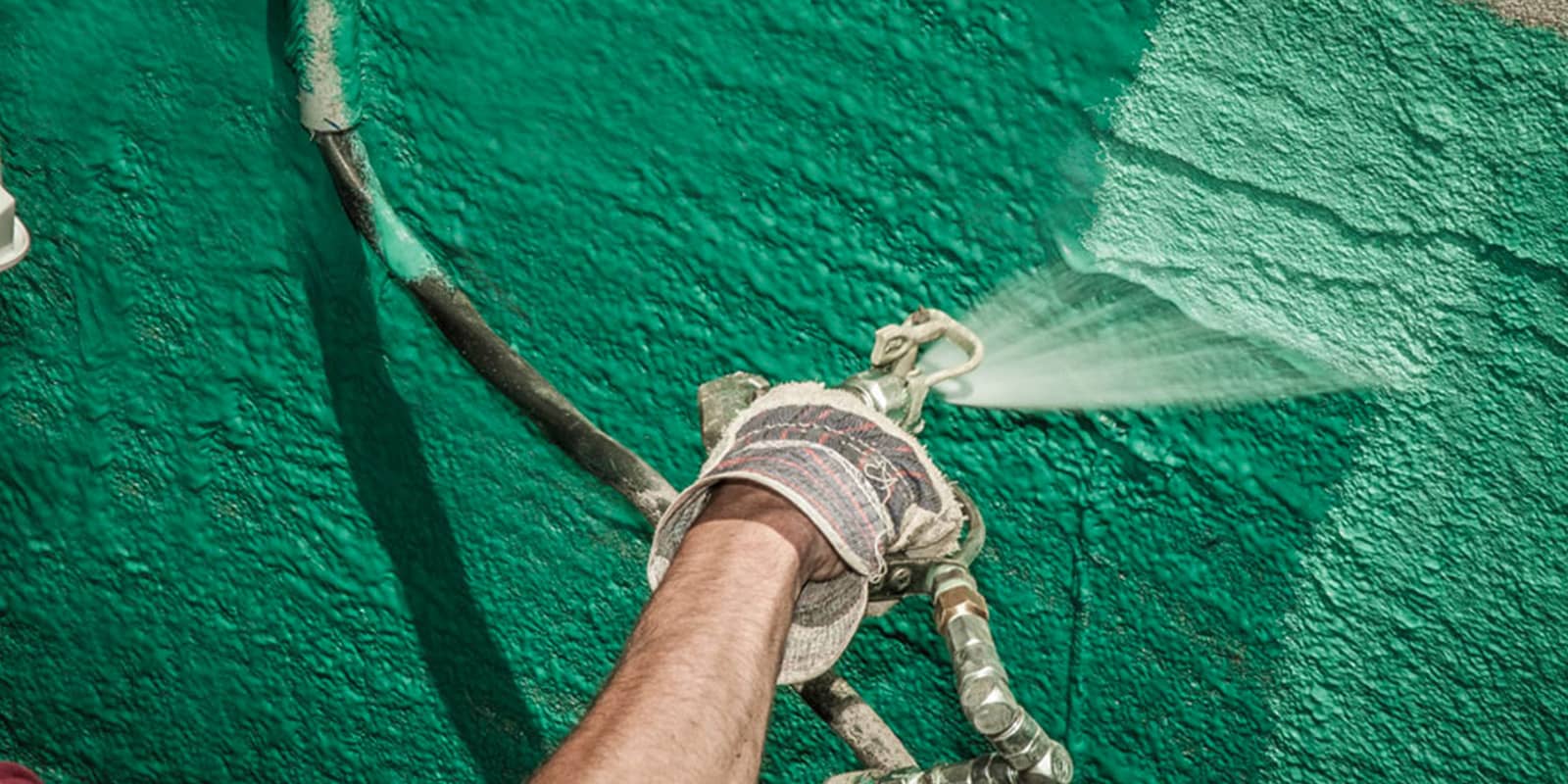Waterproofing is a crucial step in protecting your building against damage caused by water and humidity. Since the material with which your foundation is built is porous (concrete walls), many problems such as cracks, crumbling, efflorescence or lateral deformation (cement block) and moisture issues can occur. In general, we see a transfer of humidity that creates mold on everything in your basement.
Among the possible causes, we think of the use of tar during the construction of the house (the standards in Quebec not being rigorous enough, tar is allowed even if its lifespan does not exceed a few years) and the alternation of freezing and thawing, ground movements and many others.
In addition, the humidity generated by the ground (100% humidity at all times, even in sandy soils) represents a real risk in the preservation of the foundation. In the long run, this exposure to moisture results in harmful damage to health or property inside the property.
The need to make your foundations waterproof will allow you to save money, while increasing the life of your foundation. This is not a step to be taken lightly, which is why the investment is worth it. To ensure that the work is done properly, it is best to contact a team certified in foundation waterproofing.
Since there are different methods for waterproofing foundations, it is important to take certain elements into consideration. In general, the objective is to make the foundation waterproof in order to prevent any water infiltration. We must therefore think about:
- The lifespan of the waterproofing solutions material
- The effectiveness of the chosen method
- The cost of purchasing and installing the membrane
Why choose the Rub-R-Wall membrane rather than tar for waterproofing?
Foundation waterproofing is well established and has long proven its efficiency. Ideally, the best time to complete this step is during the construction of the property. Afterwards, the costs may be higher, in addition to possible damage to the interior or exterior.
The benefits are many, in addition to keeping you dry in your home. Among these, we particularly report:
- Better control of the humidity level in the house
- A reduction in heating and air conditioning costs
- Significant reduction in the risk of formation of mold or fungi, harmful to the health of your family
- No destruction effect on the structure of your home
Rub-R-Wall membrane
The Rub-R-Wall membrane is a polymer membrane that makes your foundation completely waterproof. This product can be applied to all types of foundations located below ground level and is applied in liquid form by spraying (three crossed coats). This way, it adheres to the concrete and forms a waterproof rubberized barrier of about 1 mm.
This is a product that offers superior results, in particular thanks to its effectiveness as well as its lifespan. Specially designed to last, the Rub-R-Wall membrane will be your home’s partner for a minimum of 100 years (laboratory tested, ASTM test). It will keep your basement dry, prevent damage to your basement walls and prevent mold growth in your house.
While it may be more costly than the tar coating method, it should be noted that in the long run, the membrane will be less expensive; since it will save you a lot of hassle. It offers a significantly higher durability than the method in which tar is used. Protecting yourself with the Rub-R-Wall membrane is like buying life insurance for your home. You will come out a winner, guaranteed!
Notable advantages of the Rub-R-Wall membrane:
- The relative humidity in your basement will be reduced: We are talking about a rate of approximately 30 to 40%
- A reduction in heating and air conditioning costs: The less humid air is easier to heat or cool, so it reduces your monthly bill
- Guaranteed 25 years and tested for a minimum lifespan of 100 years. It is the only product on the market that reaches such standards.
Furthermore, it is important to note that the Rub-R-Wall polymer membrane is an ecological product that releases no toxic and harmful contaminants in the soil, water or water tables.
Waterproofing with tar
The practice of tar waterproofing consists of a liquid coating on exterior foundation walls that is composed of either asphalt, asphaltic or bitumen.
The difference between tar waterproofing and the Rub-R-Wall membrane is that the tar will quickly lose its elasticity and its ability to prevent moisture from passing through the concrete. This is a product that is unreliable and low-end, causing it to evaporate over time. Although this type of product represents a quick and inexpensive solution in the prevention of moisture absorption, it is important to take into consideration that tar is not durable.
Although the price of a tar product may be tempting (between $300 and $500 for a residential foundation), remember that durability is not there. Even if you add a Delta-style draining panel, which is guaranteed for 20 years, you do not improve the quality of the tar (waterproofing agent). The transfer of humidity will even be intensified by the draining panel. This solution leaves room for risks such as water infiltration, efflorescence or the development of mold that is very harmful to your health.

